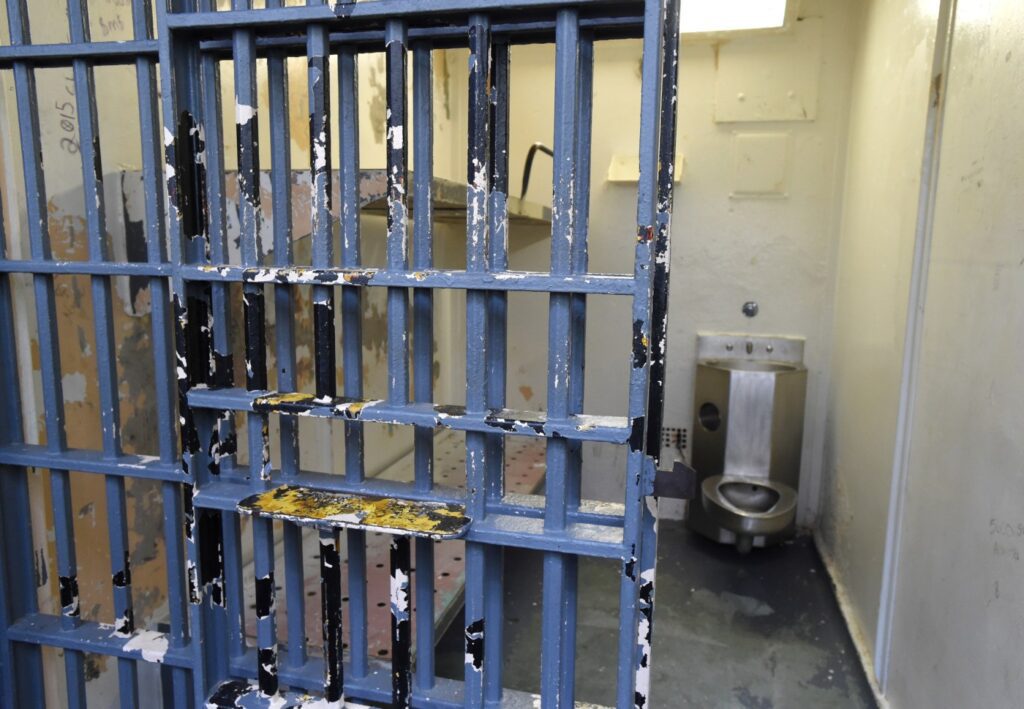Formerly incarcerated people have a wealth of knowledge; the state should use it | GUEST COMMENTARY
- January 8, 2024

While mentoring a juvenile in a detention center who was facing a 25- to 50-year prison sentence, a loud bang echoed from across the room. Another participant in the program had become extremely angry and hurled two chairs toward the wall, near the correctional officers’ control center. Both correctional officers tasked with running the unit tried to control the situation, yet the young person’s anger grew.
Caught in the moment, I struggled. As a formerly incarcerated individual myself, how could I intervene without compromising my character and the trust of the juveniles I am here to serve and advocate for? And as the lead group facilitator, how could I inspire this participant to reconsider his actions and behavior without further escalating the conflict or compromising my professional values? I feared the potential harm to the juvenile and the foreseen worsening circumstances.
I stayed seated and spoke softly yet forcibly: “Li’l bro, calm down. It’s not worth it.”
He looked me, as if he were sizing me up. He aggressively expressed frustrations at feeling he had been disrespected and vowed not to comply or be locked in his cell. I empathized, recalling moments when I too stood in his shoes. Locking eyes, I asked, “Whose respect matters more, your self-respect or the respect of others? While you’re upset over them disrespecting you, you’re about to disrespect yourself by making your situation worse.”
I could see the lightbulb flash in his head. He briefly paused to contemplate my words, but seconds later, his rage resurfaced, and the rebellion continued.
Gradually, with persistent intervention from the correctional officer, the juvenile eventually complied and willingly “locked” in his cell. Reflecting afterward, I was amazed that I assisted in resolving a conflict between a juvenile and a correctional officer while in a detention center. My history with correctional officers as a juvenile offender is conflicted.
But I am no longer that young person. Sitting at a cold steel table in the day room of this detention center evokes vivid memories of my troublesome teenage years spent caged within the criminal justice system. Although this unit was structured differently from the ones I frequented in the past, I can still feel the same atmosphere of violence, ignorance, trauma and despair that permeated the Baltimore City Detention Center, when I was housed there decades ago. Now, I am at a detention center voluntarily, however, as a college student and human services worker, eager to give back to my community using the skills I’ve acquired and hoping to inspire others.
I am a program assistant with the Chris Wilson Foundation, which gave me the opportunity to help mediate conflict in this center. But I wouldn’t be here without The University of Baltimore Second Chance Program, either, which gave me the education and skills to excel as a human service professional, or my own encounters within the justice system, which taught me how to positively influence the thinking and behavior of many incarcerated individuals.
Despite the positive benefits of involving successful formerly incarcerated people, like myself, in prison-based programming, policies often restrict those with criminal records from working within government institutions. Consequently, few individuals and government organizations are willing to invest in or take a chance on returning citizens. As a result, our society misses opportunities to engage formerly incarcerated people in roles that could not only prevent violence and conflict within detention centers and correctional institutions but also mitigate the overflow of such violence into our school systems and communities upon individuals’ release.
Following the resolution of the incident with the upset young person, I was granted a one-on-one conversation with him. He confessed to feeling depressed, angry, hopeless and unsupported. Yet he acknowledged and respected that I cared enough to intervene. As I was escorted to the parking lot later, I pondered: What if every detention center, correctional institution and public school had a formerly incarcerated individual on-site, utilizing their lived experiences to mentor and resolve conflicts among at-risk youth? What if someone like me could collaborate with correctional officers and teachers? What if, our government invested more funding into training and employment opportunities that allowed us to enter their spaces to evoke change? Consider the potential impact: a tangible reduction in the violence within our communities and a meaningful second chance for formerly incarcerated citizens.
Marcus Lilly (Mlilly@chriswilsonfoundation.com) is a program assistant with the Chris Wilson Foundation.
Sign Up For Our
Newsletter
Each day, we honor and remember those who have recently passed away.
Most Viewed
More
- Article Obituaries
- Celebrities
- Celebrity News
- Local
- News
- News & Advice
- NFL
- NHL
- Northside
- Norwin
- Obituaries
- Obituary
- Penn Hills
- Pirates
- Pitt
- Pittsburgh
- Plum
- Politics Election
- Sports
- Steelers
- Theater Arts
- Top Stories
- Travel
- Tribune Review Obituaries
- US-World
- Valley News Dispatch
- West End
- Westmoreland
- World